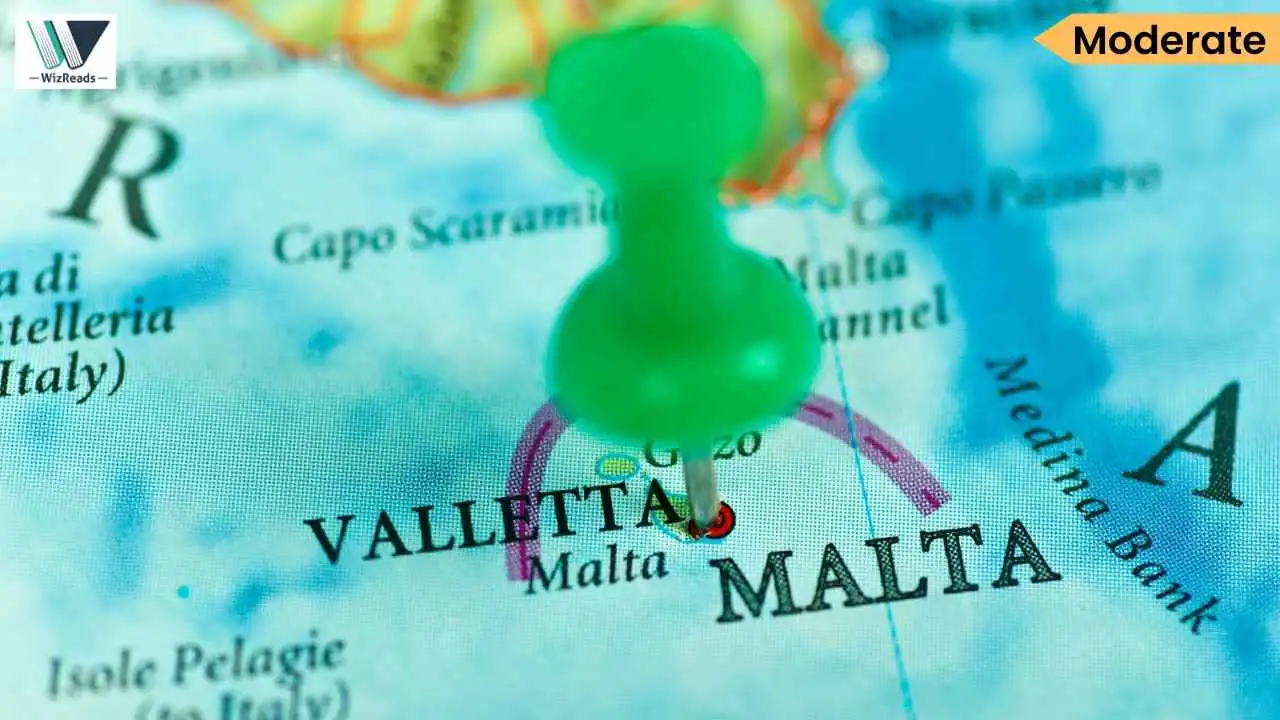
Newsletter Subscribe
Enter your email address below and subscribe to our newsletter

Enter your email address below and subscribe to our newsletter

What happens when small nations become digital financial powerhouses by offering regulatory shortcuts to global corporations? Can lenient oversight frameworks truly drive economic growth without creating systemic risks for the broader international community? These moderate difficulty RC passages explore how regulatory havens exploit jurisdictional advantages to attract digital enterprises, demanding nuanced analysis of the complex relationship between competitive governance strategies and their far-reaching consequences for global financial stability.
Read these easy RC passage(s) in Business, Economy, and Governance and answer the question(s) that follows. You can choose the GMAT style Reading Passage and the question or the GRE RC variant and answer the GRE-style question. Even better, you could solve both.
Malta’s transformation from a traditional Mediterranean economy into Europe’s premier online gambling jurisdiction represents one of the most dramatic regulatory pivots in modern financial services. Originally reliant on tourism, shipping, and manufacturing, the island nation recognized the emerging digital economy’s potential in the early 2000s when European Union membership provided unprecedented market access. Maltese authorities strategically positioned themselves as pioneers in online gaming regulation, establishing comprehensive licensing frameworks that attracted hundreds of international operators seeking legitimate European market entry.
The regulatory approach initially emphasized accessibility and business-friendly policies, with streamlined application processes and competitive tax structures drawing major gaming corporations to relocate their operations. By 2010, Malta had emerged as the undisputed leader in European online gambling licensing, hosting over 300 licensed operators and generating substantial revenue through licensing fees and corporate taxation. However, this rapid expansion subsequently created unintended consequences as the sheer volume of operators overwhelmed existing oversight mechanisms.
Currently, international financial authorities express growing concern about potential money laundering activities within Malta’s gaming sector, citing insufficient due diligence procedures and inadequate transaction monitoring systems. These developments have prompted regulatory reassessment, with Maltese officials now implementing enhanced compliance requirements and stricter oversight protocols to address international scrutiny while preserving their competitive advantage in the digital gaming marketplace.
Based on the passage, which of the following can most reasonably be inferred about the international operators that relocated to Malta?
The passage states that Malta’s licensing frameworks “attracted hundreds of international operators seeking legitimate European market entry.” The word “legitimate” suggests these operators needed proper legal authorization to access European markets credibly, and comprehensive licensing frameworks would provide this legitimacy. The emphasis on “European market entry” further supports that proper licensing was essential for credible operations in this regulated market.
Correct Answer: Choice (A)

The proliferation of offshore financial havens specializing in digital services has created a pernicious regulatory vacuum that undermines global financial stability. Small jurisdictions, capitalizing on their sovereignty, establish lenient oversight frameworks that attract enterprises seeking to circumvent stringent regulations in major economies. This regulatory arbitrage enables activities ranging from cryptocurrency exchanges to online gambling platforms to operate with minimal scrutiny, creating opportunities for illicit financial flows and money laundering schemes. The consequences extend beyond individual jurisdictions, as these havens effectively export regulatory risks to interconnected global financial systems.
Addressing this challenge requires coordinated international action rather than piecemeal national responses. Multilateral organizations should establish binding minimum standards for digital financial services, regardless of jurisdiction size or economic leverage. Tax authorities must develop sophisticated cross-border information sharing mechanisms that eliminate the opacity these havens exploit. Additionally, major financial centers should implement secondary sanctions targeting institutions that facilitate transactions with non-compliant jurisdictions, creating economic incentives for regulatory harmonization. Only through such comprehensive measures can the international community mitigate the systemic risks posed by regulatory havens while preserving legitimate competition among financial jurisdictions.
How is the passage structured?
The passage first identifies and explains the problem of regulatory havens creating a “pernicious regulatory vacuum” and details how this undermines financial stability. The second paragraph then shifts to proposing coordinated solutions, including binding international standards, information sharing mechanisms, and secondary sanctions. The structure clearly follows a problem-solution format where multiple interconnected remedies address the root causes of regulatory arbitrage.
The correct answer is Option (C)